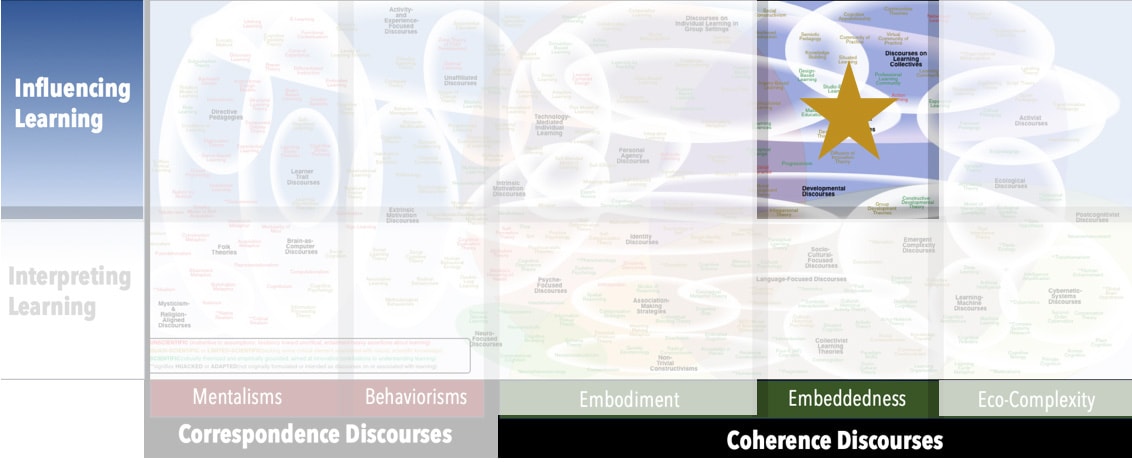AKA
Online Community of Practice
Focus
Self-maintenance of an expertise-oriented, web-based collectivePrincipal Metaphors
- Knowledge is … scope of possible action and interpretation
- Knowing is … co-participation
- Learner is … a practitioner (individual) and a self-maintaining collective
- Learning is … apprenticing
- Teaching is … mentoring
Originated
2000sSynopsis
A Virtual Community of Practice is a Community of Practice in which most of the interaction is developed on, mediated by, and maintained through digital technologies. As with a more typical Community of Practice, a Virtual Community of Practice is organized around a specific domain of interest, includes expert practitioners, has an initiation/apprenticeship structure to induct new members, engages members in collective knowledge creation and sharing, and involves a substantial level of synchronous interaction. Associated discourses include:- Virtual Learning Community (John December, 2000s) – a more general notion that Virtual Community of Practice, the phrase Virtual Learning Community can be applied to any group that uses web-based technology to exchange ideas and information
- Virtual Learning Environment – a general term that can be applied to any web-based platform used to present information, mediate interactions, and manage products
Commentary
The original concept of a Community of Practice was based on studies of real collectives. Face-to-face interactions and interpersonal relationships were strong themes – especially relative to the communication and maintenance of tacit community knowledge. A Virtual Community of Practice necessarily erodes those key features.Authors and/or Prominent Influences
Jean Lave; Etienne WengerStatus as a Theory of Learning
Virtual Community of Practice is not a theory of learning. It is, rather, an elaboration of one aspect of Situated Learning.Status as a Theory of Teaching
While the discourse surrounding Virtual Community of Practice is more descriptive than prescriptive, it does offer advice that could be considered pedagogical in nature, especially around group dynamics, formal and informal processes, and strategies for formatting inductions (such as apprenticeships).Status as a Scientific Theory
By virtue of its affiliation with Situated Cognition, Virtual Community of Practice meets some of the requirements of a scientific theory. However, because it is more descriptive than prescriptive, it is difficult concept to “test” or prove. That said, the principles of Virtual Community of Practice have been shown to be boons for research into collective dynamics, enabled by the simple fact that the medium of communication retains traces of interactions and records of engagement with and production of knowledge.Subdiscourses:
- Virtual Learning Community
- Virtual Learning Environment
Map Location

Please cite this article as:
Davis, B., & Francis, K. (2021). “Virtual Community of Practice” in Discourses on Learning in Education. https://learningdiscourses.com.
⇦ Back to Map
⇦ Back to List
